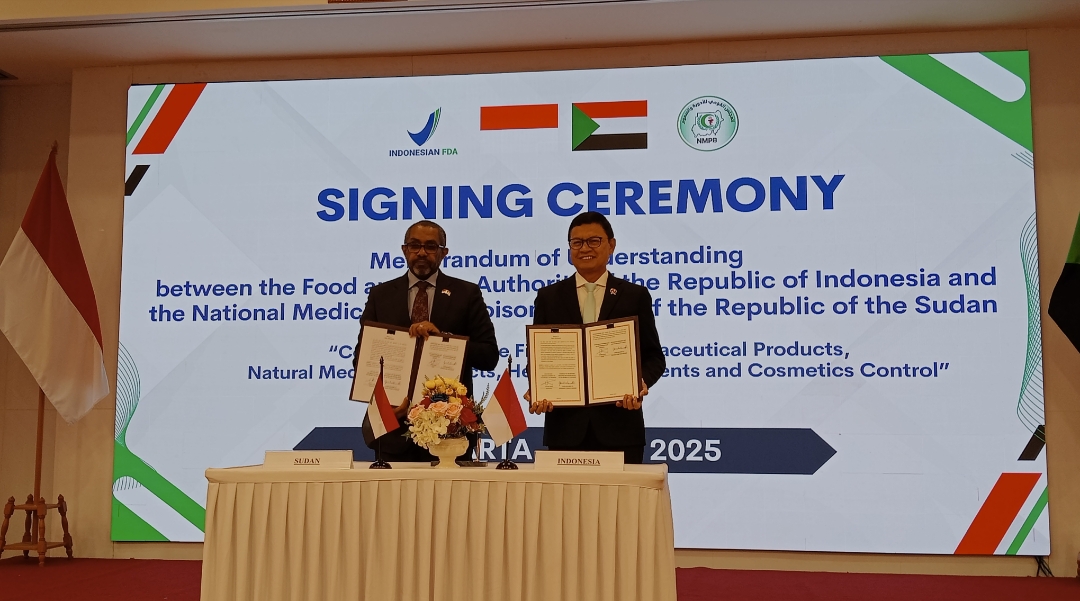Jakarta, MINA – The National Agency of Drug and Food Control (BPOM RI) has officially signed a Memorandum of Understanding (MoU) with the Government of Sudan, through its Embassy in Jakarta on Thursday.
This agreement is expected to strengthen bilateral cooperation and open doors for Indonesian pharmaceutical products, supplements, cosmetics, and particularly herbal products, to enter the Sudanese market, which boasts a population of over 45 million.
During a press conference, BPOM RI Head Taruna Ikrar explained that this collaboration has three main objectives. Firstly, it aims to strengthen good relations and enhance cooperation in drug and food supervision between Indonesia and Sudan, especially within the framework of South-South cooperation.
“This also serves as a follow-up to the commitments we agreed upon at the Indonesian African Forum in Bali last year,” Ikrar stated.
Also Read: Indonesia Reaffirms Full Support for Palestinian Independence Before Jordan’s King
He further emphasized Indonesia’s significant potential in the traditional medicine and herbal sectors. Currently, Indonesia boasts over 30,000 types of medicinal plants, commonly known as herbal remedies, along with 17,264 types of indigenous Indonesian medicines passed down through generations.
“We must develop this potential so it can be exported, not only to help public health but also to boost economic growth through supplements, cosmetics, and other medicines,” he added.
Through this MoU, drug and food products approved by BPOM can directly enter Sudan without additional selection. This means Indonesia automatically gains access to a new market with substantial economic potential.
“If demand increases, production will also grow, impacting industrial growth, job creation, and elevating our medicines to standardized pharmaceutical products,” the BPOM Head remarked.
Also Read: Majenang Landslide: 21 Missing in Central Java
Meanwhile, Sudanese Ambassador to Indonesia, Yassir Mohamed Ali, welcomed the cooperation, emphasizing Sudan’s strategic position as a gateway to the broader African market.
“Africa has diverse economic conditions, and Sudan serves as one of the entry points to this region,” he said.
According to Ali, his country has a market potential of over US$400 million per year. He views this collaboration as highly strategic for expanding the distribution of Indonesian products, particularly halal products, in Sudan and other African regions.
“We want to see Indonesian products present in Sudan and strengthen the economic and social ties between our two countries,” he added.
Also Read: BPOM Sets MURI Record for Producing 810 Reference Standard Compounds
With this agreement, Indonesia hopes to further expand its trade network and introduce its rich herbal heritage and indigenous products to the international stage, especially within the African continent. [Shibgho]
Mi’raj News Agency (MINA)
Also Read: Densus 88 Confirms Jakarta School Explosion Was Not Terror-Related
































 Mina Indonesia
Mina Indonesia Mina Arabic
Mina Arabic